Celebrating Success!
Discover TAPAS and our Research
PhD Viva Success for Helena
World Thrombosis Day #WTD21
This year TAPAS students joined in on twitter @TAPAS_ITN with #WTD21 on 13th October. World Thrombosis Day is the global yearlong movement to build awareness about #bloodclots, http://worldthrombosisday.org #KnowThrombosis #KeepLifeFlowing
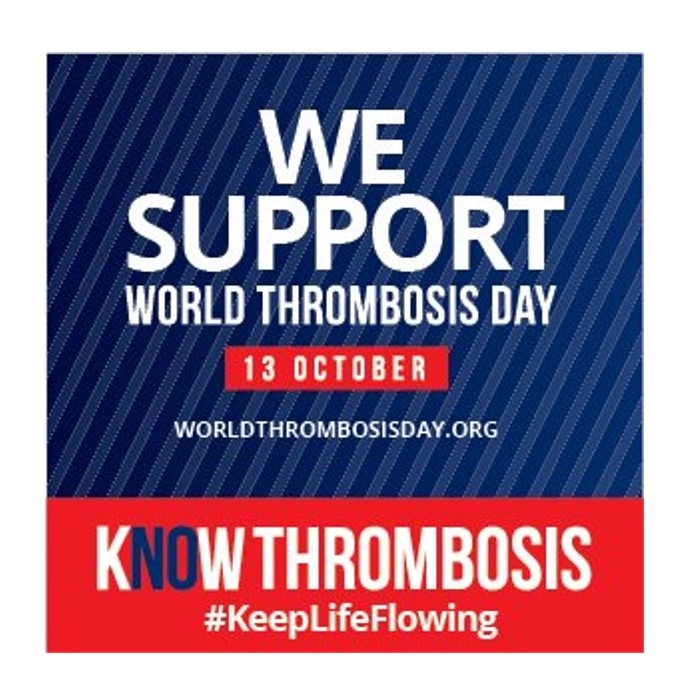
24.09.21 TAPAS takes part in ‘G Night’ for #MSCA #EuropeanResearchersNight
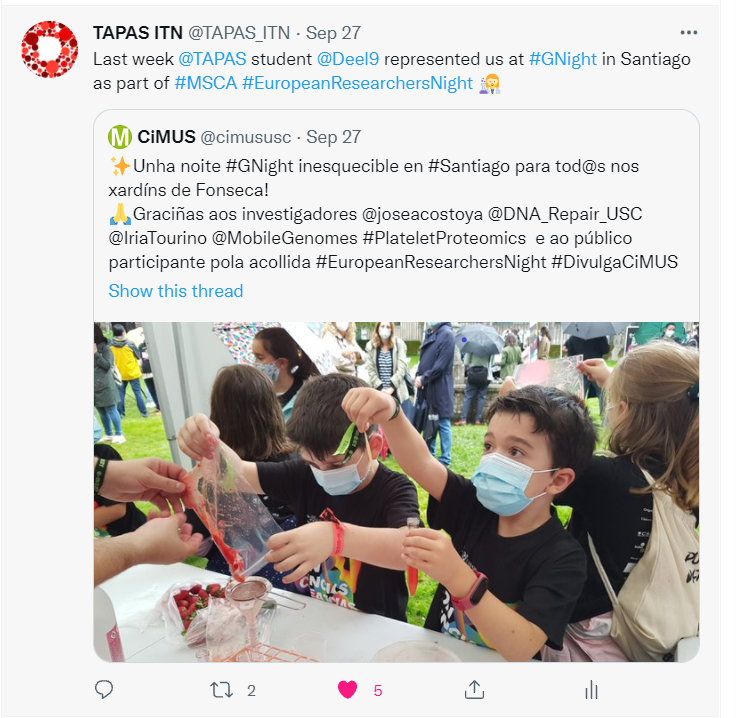
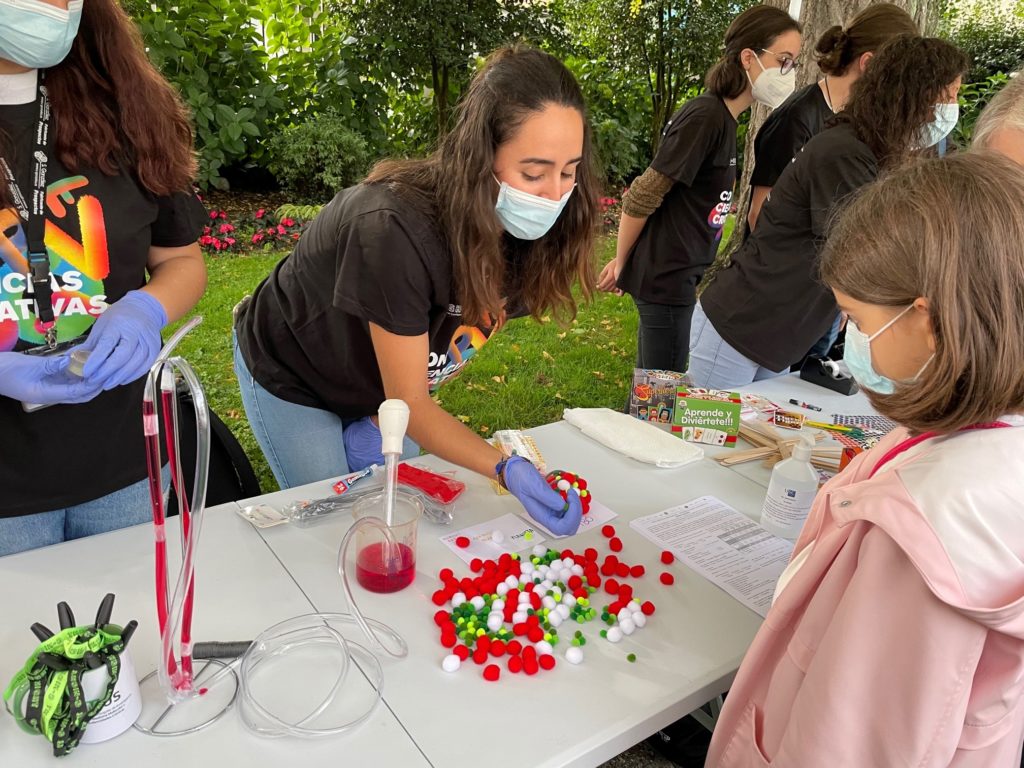
TAPAS Student Wins Prize 😊🎁👏
Congratulations to Xueqing Wang for winning a prize at the 4th Annual CiMUS Workshop with her short talk on Platelet Proteomics and characterising platelet membrane receptors in their native environment using novel polymer-based nanodiscs.
https://www.usc.es/cimus/en/events/iv-annual-cimus-workshop-virtual-edition
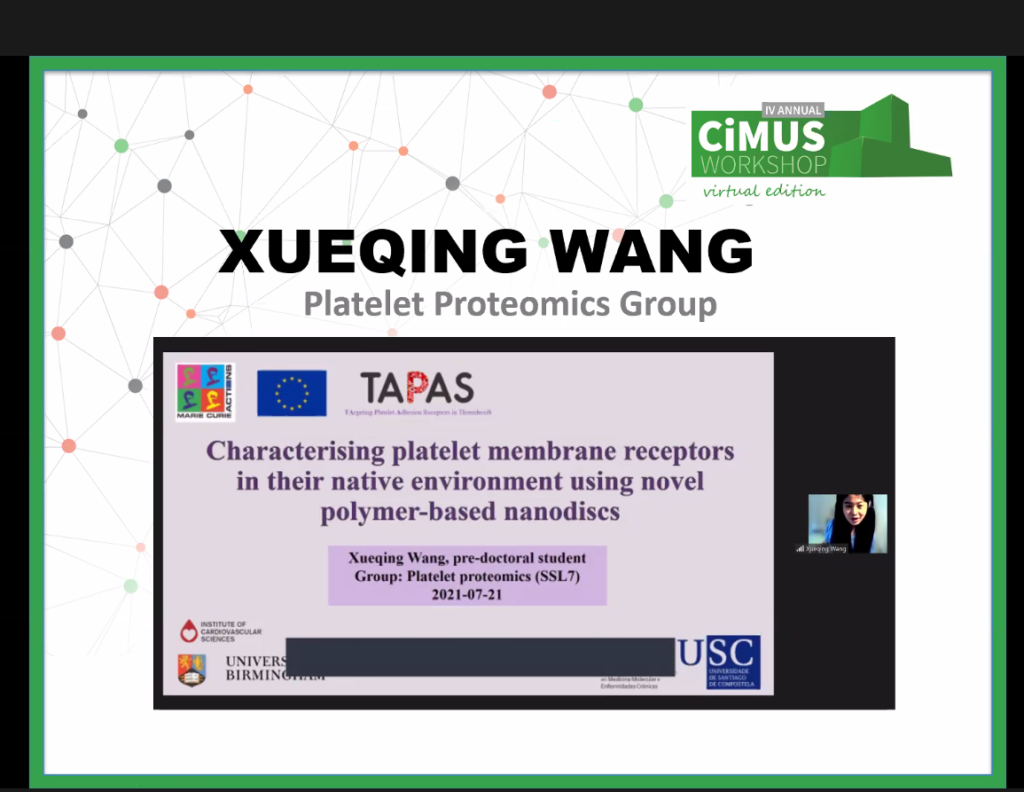
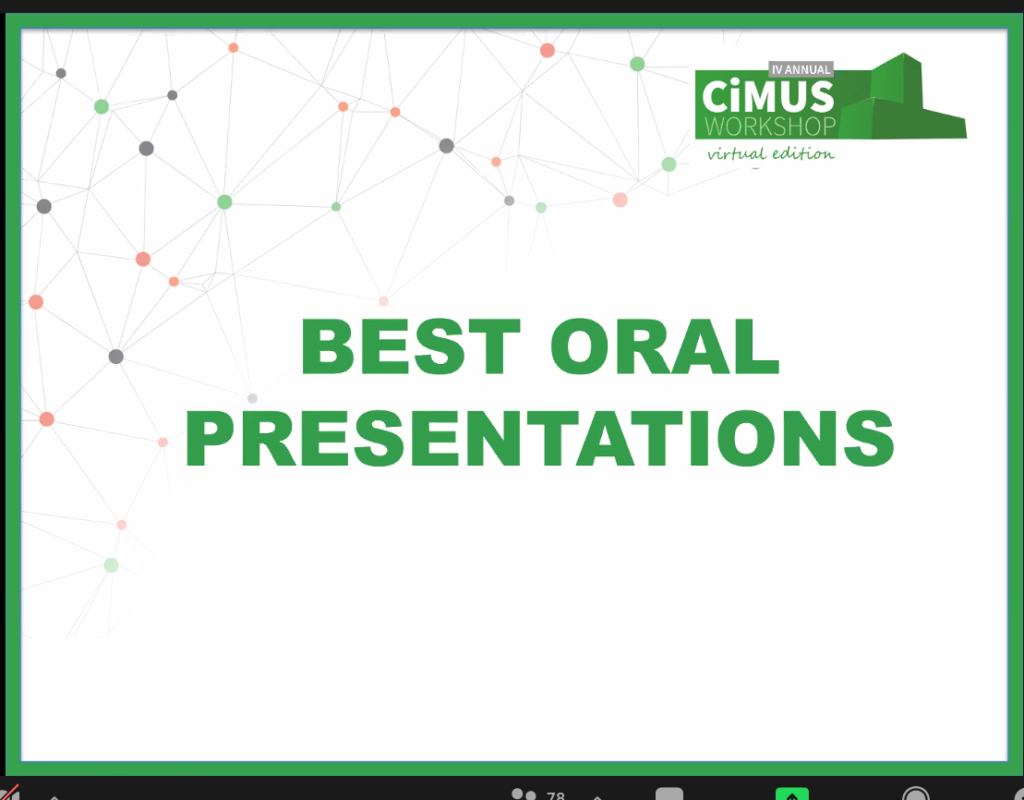
 TAPAS 2021 Conference 2: What has been achieved?
TAPAS 2021 Conference 2: What has been achieved? 
This was a virtual network-wide event, which took place on 22nd – 24th June 2021, with thanks to our host Dr Ángel García at The Center for Research in Molecular Medicine and Chronic Diseases (CiMUS), The University of Santiago de Compostela @cimususc@TAPAS_ITN
The 3 day conference was an opportunity to meet as a network for the final time to hear each of the students present their research. It was a pleasure to come together to celebrate the research and achievements of our 15 Early Stage Researchers studying the Targeting of Platelet Adhesion Receptors in Thrombosis.
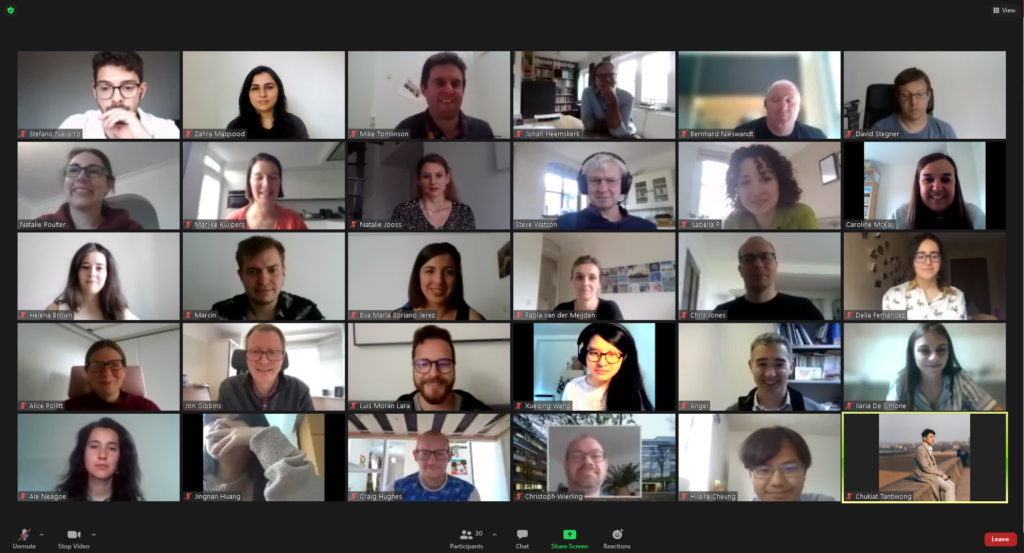
We used Gather.Town to increase engagement of participants during the conference.
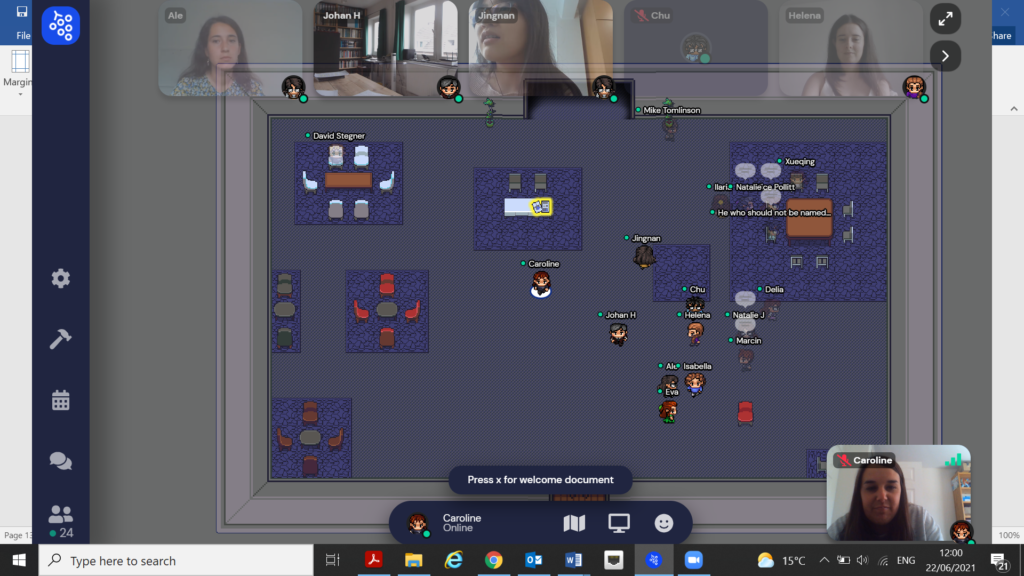
World Thrombosis Day 2020
This year TAPAS students joined in on twitter @TAPAS_ITN with #WTDay20 on 13th October. World Thrombosis Day is the global yearlong movement to build awareness about #bloodclots, http://worldthrombosisday.org #KnowThrombosis #KeepLifeFlowing
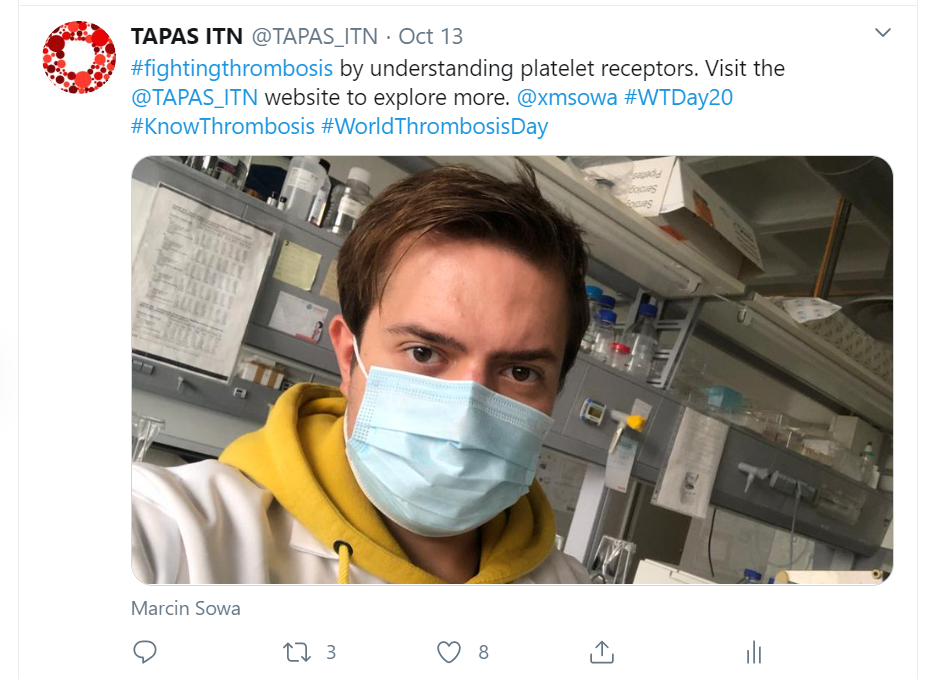
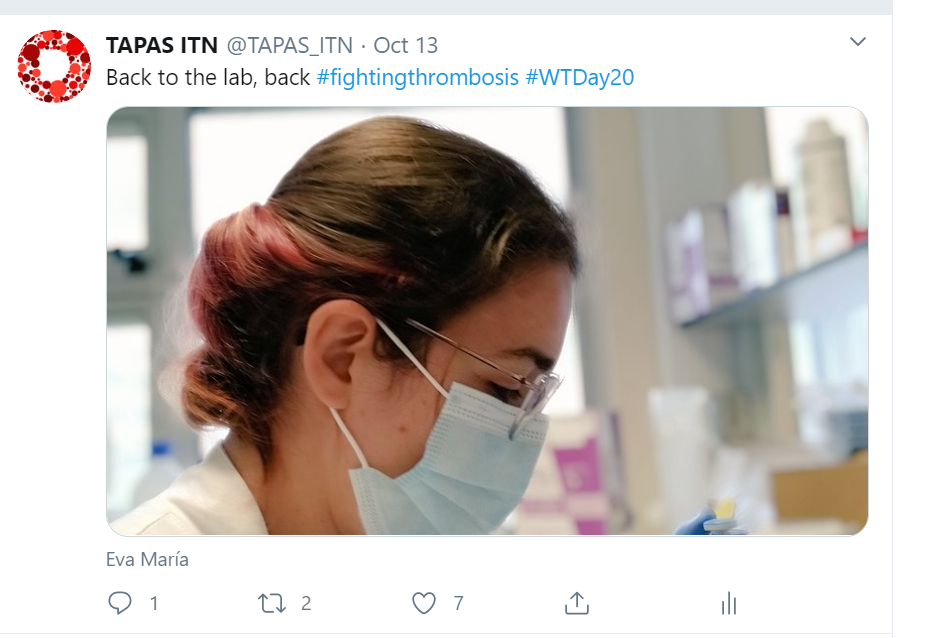
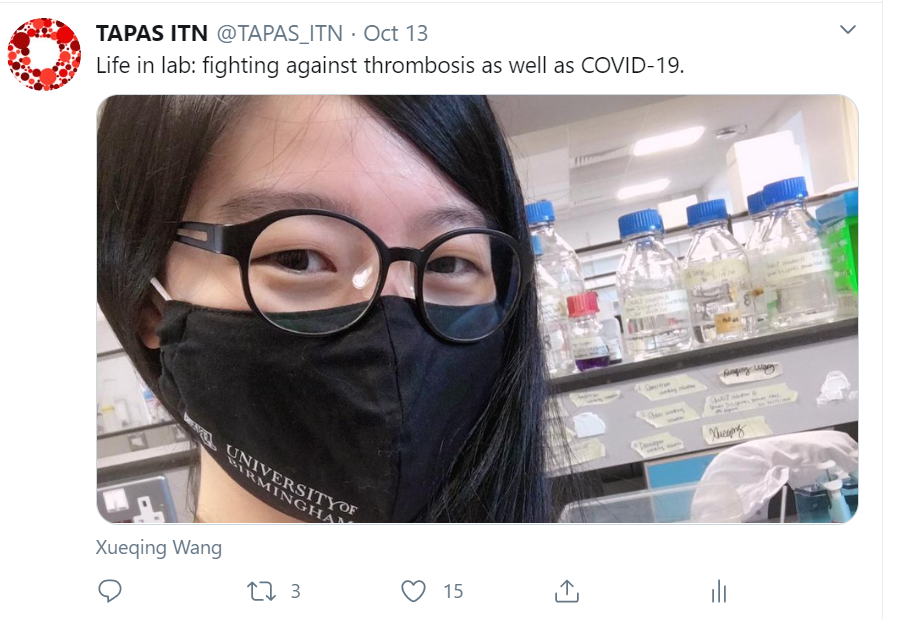
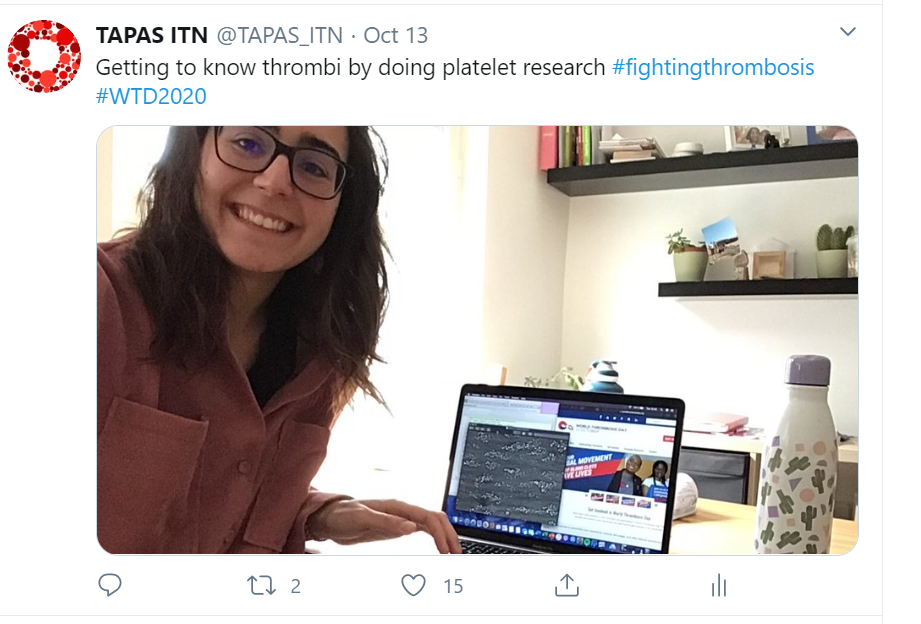
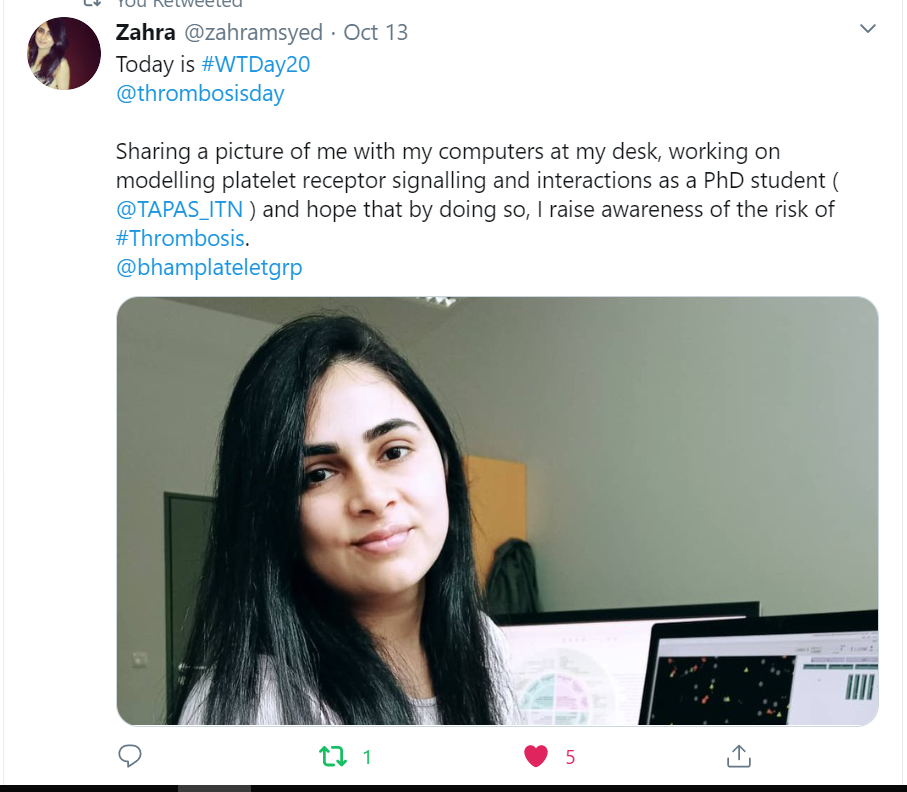
filed under: @TAPAS_ITN, #WTDay20, ESR Blog, Network Activity, Public Engagement
TAPAS Going “Virtual” during COVID19:
TAPAS Virtual Workshop June 2020
The virtual TAPAS workshop 2020 consisted of four-session, each Thursday during June. The first session was focus on career development, industry and publishing. Here, we learnt from Dr Ben Johnson, a former PhD student from the University of Birmingham, about his experience in Medical communications in Excerpta Medica, he made an excellent summary of the challenges, tips and opportunities to develop a career on this field. Moreover, Prof. Christoph Wierling from Alacris presented his work on the development of a virtual patient model for personalised drug response predictions.
On Session 2, we learnt about the career on pharmaceutical industry based on the experiences of Dr Hans Van Giezen in Bayer, as well as, we received a masterclass from Dr Stefan Heitmeier about the efforts of the pharmaceutical industry on the development of novel antithrombotics. We also enjoyed the scientific talks from Prof Hans Deckmyn and Sonia Severin about the challenges of targeting GPIb-vWF interaction and PI-3K, respectively.
Session 3 and 4 was dedicated to the ESR’s to present their progress and ask challenging question through the different projects. During these sessions, all ESR’s and supervisors demonstrated their compromised to achieve their goals as a team and their effective communication through the previous Slack meetings.
During each presentation, we observed challenging questions from supervisors, but also ESRs. We were all committed to establish collaboration within projects and help our colleagues to get the most of each project around the consortium.
To sum up, I considered that the virtual TAPAS workshop was a complete success, it was interactive, very well organised and it had an excellent scientific level. However, we cannot hide how much we missed our traditional face-to-face meetings.
filed under: Consortium Communications, ESR Blog, Network Activity
The MOOC ‘Heart Health: A Beginner’s Guide to Cardiovascular Disease’ offered by the University of Reading (United Kingdom) from 24th February until 22nd March 2020
Website: https://www.futurelearn.com/courses/heart-health
The Heart Health MOOC is a free online course taken by about 600 participants, to learn about the structure and function of the heart and the main conditions that can affect it (heart attacks, strokes, angina, hypertension, heart failure, valvular disease). Participants vary from school aged through to retired people, many of whom are affected by heart conditions or know someone affected.
The course lasts several weeks with learning materials including videos, a home practical, and an activity where participants try to find out about a topic at home. Participants post comments and might ask questions. The course uses the role of the mentors to check the comments and to answer any questions, as well as encouraging the participants or stimulating interesting ideas during the first 4 weeks of the course.
TAPAS students Delia and Stefano volunteered as MOOC mentors and wrote about their experience…
“It was an interesting and different mentoring experience. For us the activity mainly consisted of a bit of literature searching and finding the proper words to make the explanation easy and clear to the students. It was challenging to reply to questions about several aspects of cardiovascular diseases, since we are mainly experts in platelet biology, and to be able to explain in a clear and concise way. Given that the students have different backgrounds, a wide range of age, and different goals that they want to achieve, it was a bit difficult sometimes to not go into too much detail. We learnt a lot about some aspects of cardiovascular sciences and we quite enjoyed being mentors of the course.”
The students are also involved in the next run of the Heart Health MOOC, which began in September.
About MOOCs
Massive Open Online Courses (MOOCs) are free online courses available for anyone to enroll. MOOCs provide an affordable and flexible way to learn new skills, advance your career and deliver quality educational experiences at scale.
Millions of people around the world use MOOCs to learn for a variety of reasons, including: career development, changing careers, college preparations, supplemental learning, lifelong learning, corporate eLearning & training, and more.
MOOCs have dramatically changed the way the world learns.
TAPAS Training Workshop 2, Wurzburg October 2019
Report by Ilaria De Simone
The TAPAS workshop in Würzburg was a three-day meeting, consisting of lectures, workshops and presentations of the ESRs. On Monday evening, the ESRs gathered in a Mexican restaurant, while the supervisors and supervisory board attended the management dinner.
The next day, the TAPAS Summer School actually started and was kicked off by Prof. Bernhard Nieswandt, who gave an introduction of the University Hospital Würzburg and Rudolf Virchow Center. It was followed by an overview of the TAPAS project by Steve Watson, Jon Gibbins and Bernhard Nieswandt. Next, there were talks about virtual enterprise and public engagement. Just like the locals, we enjoyed a lunch in the canteen of the university building. In the afternoon, we visited the laboratories and had a practical workshop in murine thrombosis models. Using microscopy, we saw some of the possibilities of these models.
In the evening, we came together for a dinner at Alter Kranen, where we had typical German food. This was a good opportunity to catch up with all supervisors and supervisory board. On Wednesday and Thursday, the ESRs presented their own work so far in a 10 minutes presentation. After each presentation, there was room for discussion. On Wednesday evening, the ESRs enjoyed the ‘Night Watch’ in which a guide showed Wurzburg city center and its rich history.
Thursday, the longest part of the day the ESRs continued to present their data. Next to scientific talks, there were also talks that focused on management styles for more effective research and on how to translate your research to the industry.

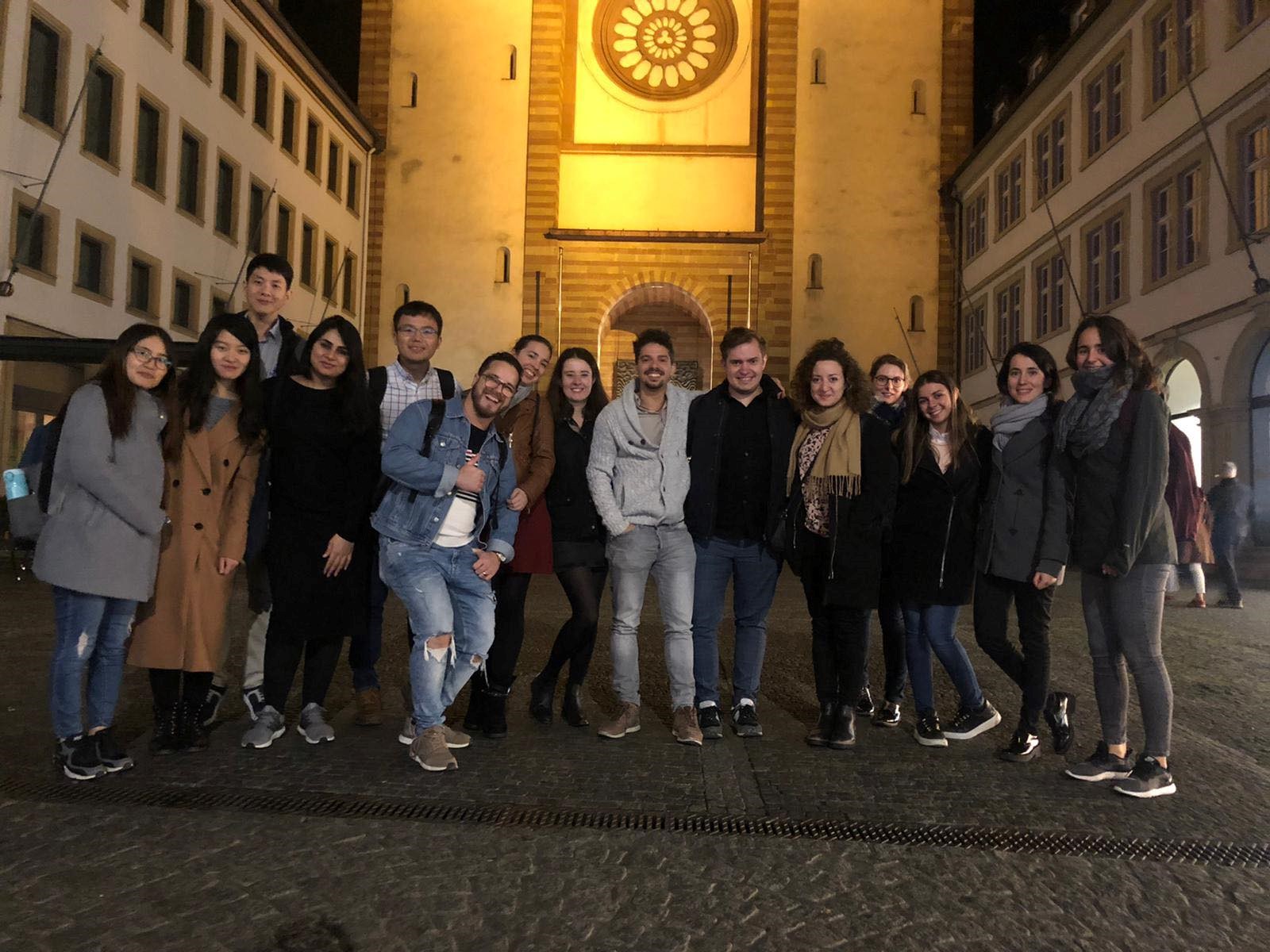
UK Platelet Society Meeting, Cambridge 12th – 13th September 2019
Meeting Overview by Natalie Jooss:
The meeting of the UK platelet society 2019 was a two-day conference consisting of in total 6 sessions and a poster session. Three sessions each day, were started off with a 30-minute presentation given by a keynote speaker, following 4 to 5 10-minute presentations of early state researchers (PhD students, Post-docs). Overall, many PhD students were given the opportunity to introduce their research with a 10-minute presentation.
Next to many, excellent talks focusing on Platelet formation and function, platelet pharmacology, novel experimental approaches, unmet clinical needs, interactions with platelets with other cells / organisms or the extracellular matrix. One of the highlights was the Gustav Born Memorial lecture given by Richard Farndale about “The role of vessel wall collagens in thrombus formation”. In this lecture he elegantly summarized one of the most fundamental findings during his career in honour of his retirement.
Most of the present TAPAS students were given the opportunity to present part of their research with a poster.
Photo taken in the inner yard of the West Court at Jesus College in Cambridge:
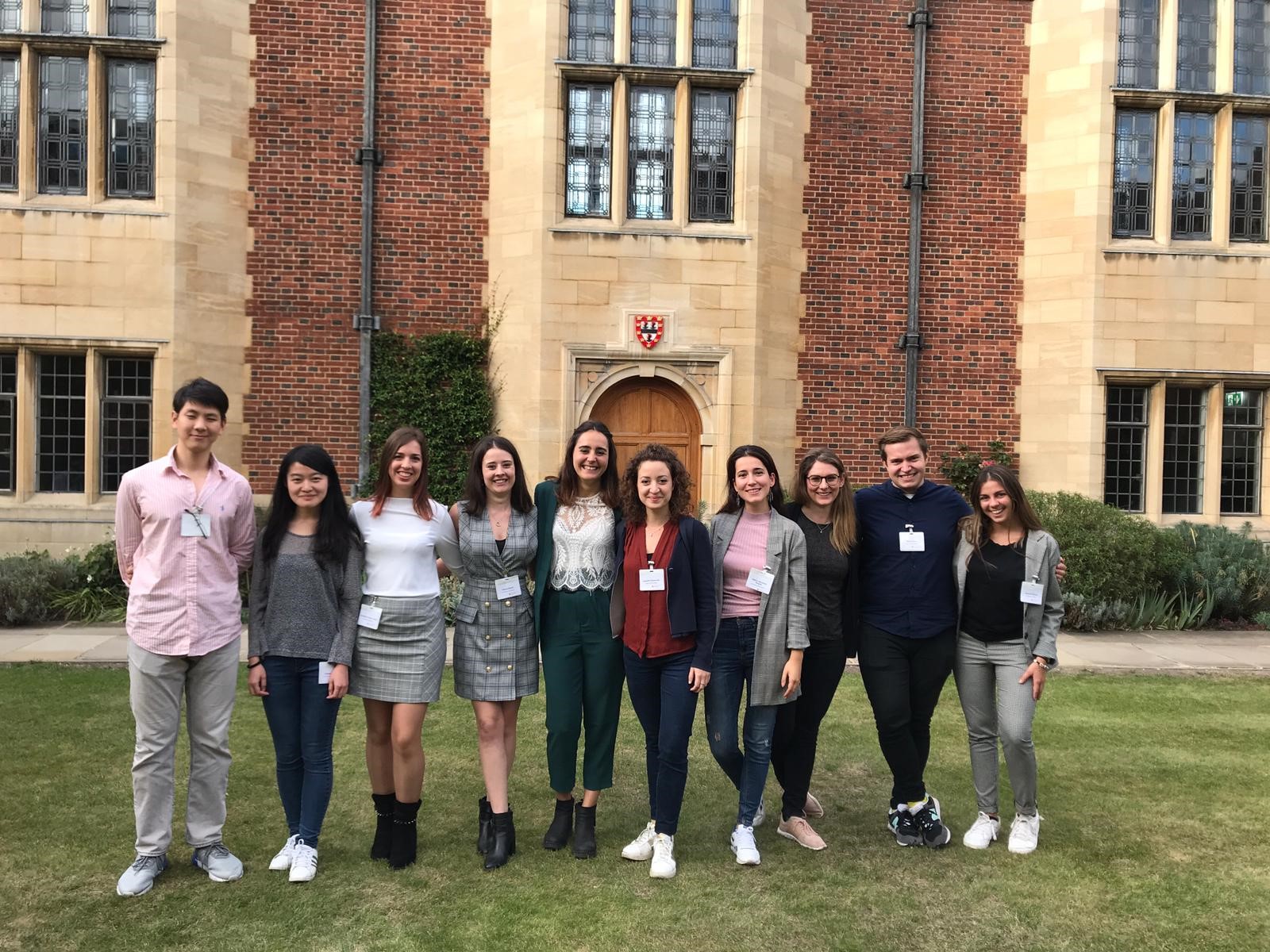
ESR Mobility: University of Rijeka, Croatia
ESR1, Raluca Neagoe (Ale), has completed a 10 week secondment at the University of Rijeka in Croatia. Ale was working in Antonija Begonja’s lab over the summer, before returning to the University of Birmingham in August. During the
1) Visualising PIP2 distribution and downstream signalling events in mouse bone marrow-derived megakaryocytes and secondment Ale was:
human platelets spread on different substrates +/- pharmacological intervention.
2) Determining platelet receptor GPVI association with the actin cytoskeleton using ultracentrifugation.
3) Establishing a Rac1 knock out human megakaryocyte-like cell line (HEL cells) using CRISPR technology
4) Visiting the beach at weekends
Photo: Rijeka, Croatia
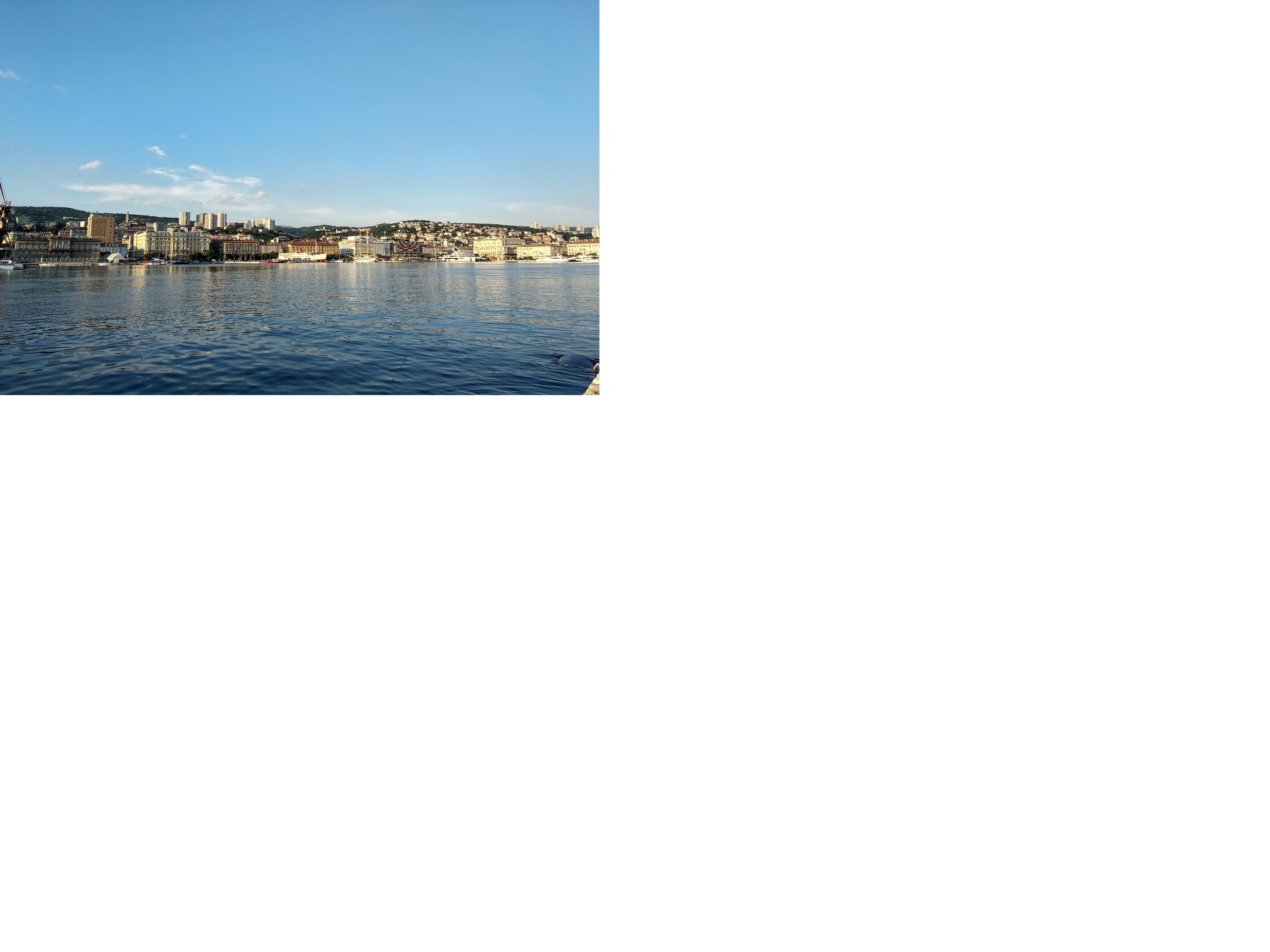
Maastricht visits USC
On the first week of September Prof. Johan Heemskerk and the TAPAS student Delia Fernández, from Maastricht University, visited Prof. Ángel García’s lab at CIMUS, Santiago de Compostela, to set up the fluorescence microscopy-based platelet flow-adhesion assay using the Maastricht microfluidics chamber. The technology was set up successfully thanks to the team effort and hard work carried out during two intense days by Johan, Delia and the platelet team at Santiago. This new technology will benefit all TAPAS students coming to CIMUS and will strengthen the collaboration between Johan and Ángel’s groups. At the same time both Johan and Delia had the opportunity to get to know CIMUS and enjoy some time in Santiago de Compostela.
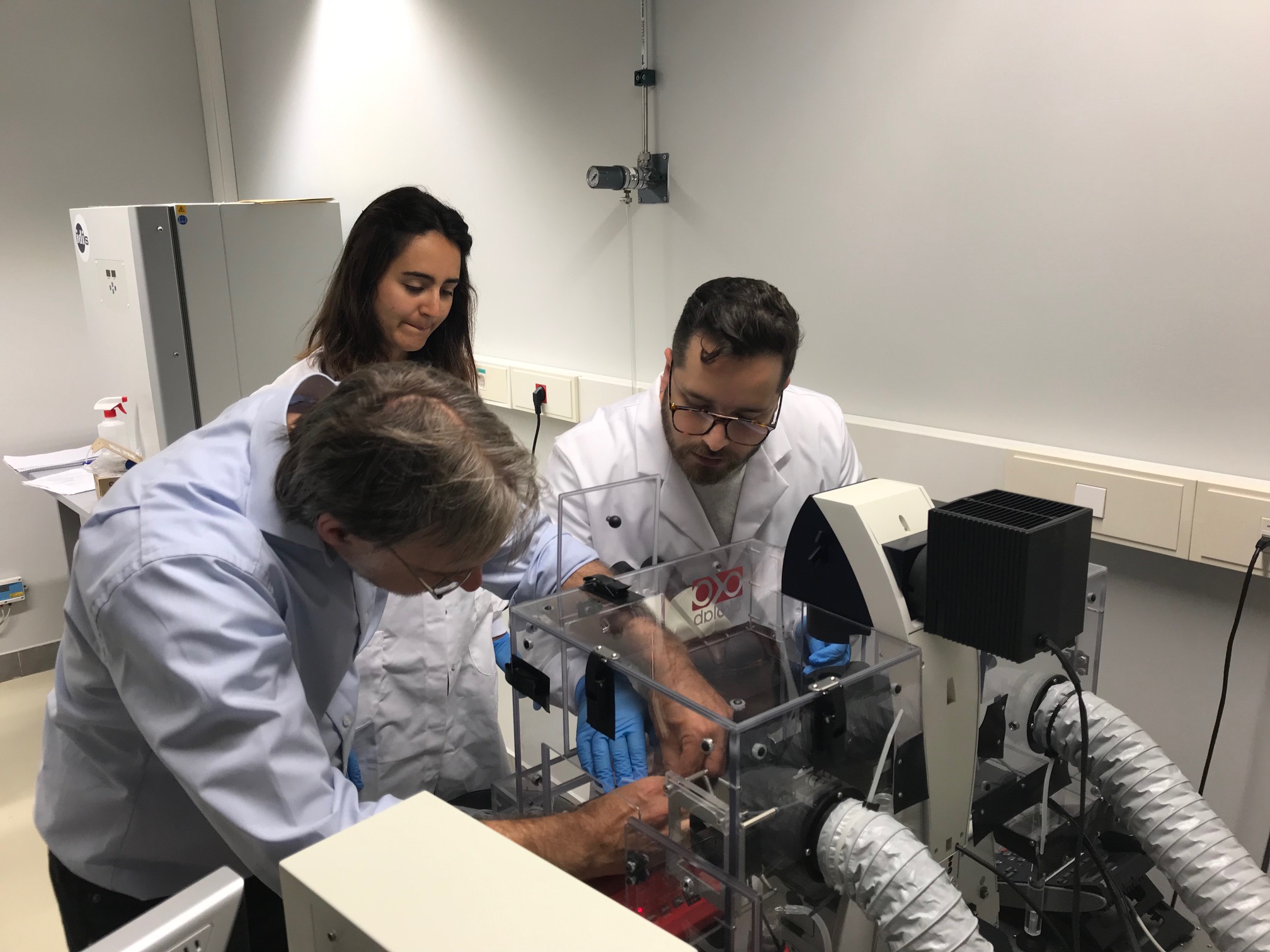
First TAPAS Publication
June 2019 saw the publication of the first TAPAS publication. Congratulations to first authors; Natalie J. Jooss, Ilaria De Simone, Isabella Provenzale, Delia I. Fernández, who are all TAPAS early stage researchers at the Cardiovascular Research Institute Maastricht (CARIM), Maastricht University.
Journal: International Journal of Molecular Sciences
Special Issue Molecular and Cellular Basis of Thrombotic Disease
Jooss, N.J.; De Simone, I.; Provenzale, I.; Fernández, D.I.; Brouns, S.L.; Farndale, R.W.; Henskens, Y.M.; Kuijpers, M.J.; ten Cate, H.; van der Meijden, P.E.; Cavill, R.; Heemskerk, J.W. Role of Platelet Glycoprotein VI and Tyrosine Kinase Syk in Thrombus Formation on Collagen-Like Surfaces. Int. J. Mol. Sci. 2019, 20, 2788. https://www.mdpi.com/1422-0067/20/11/2788
Photo from left to right: Delia Fernández, Ilaria De Simone, Isabella Provenzale, Natalie Jooss.
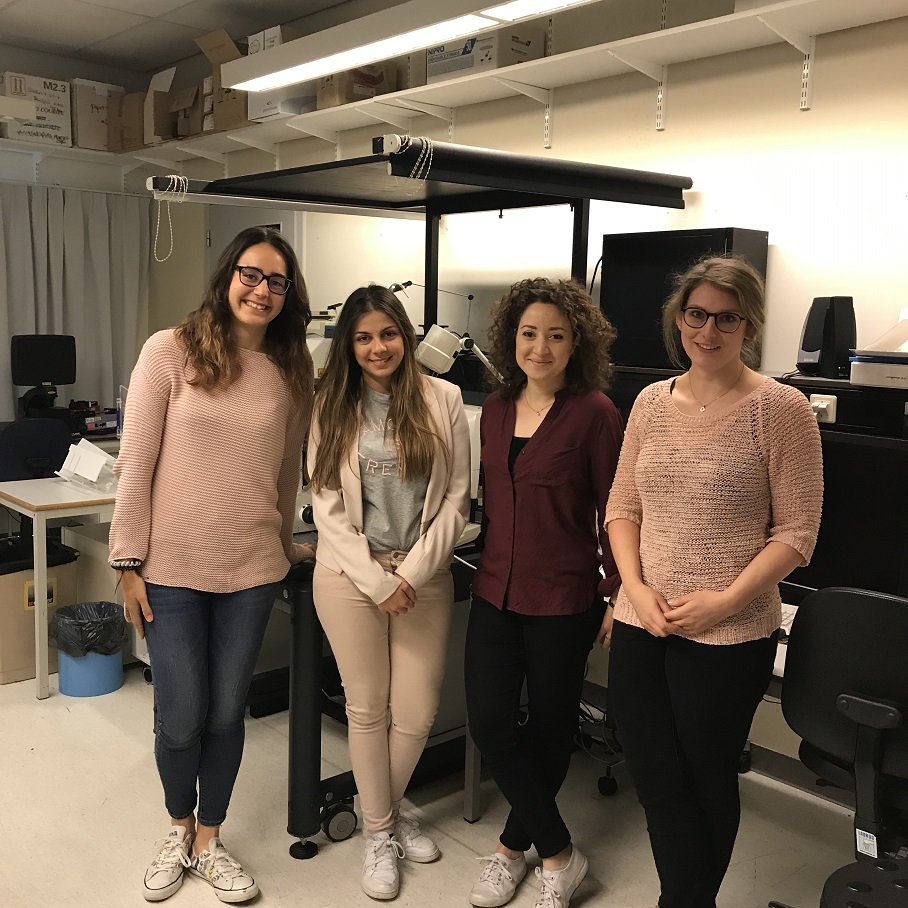
USC visit to Maastricht
Recently Prof. Ángel García and Luis Moran (ESR15), from the University of Santiago de Compostela (USC), visited Prof Johan Heemskerk’s lab at Maastricht University (UM) to discuss TAPAS research and see a demonstration with the Maastricht flow chamber.
Photo from left to right: Ilaria De Simone, Delia I. Fernández, Prof Johan Heemskerk, Prof Ángel García, Luis Moran, Isabella Provenzale.
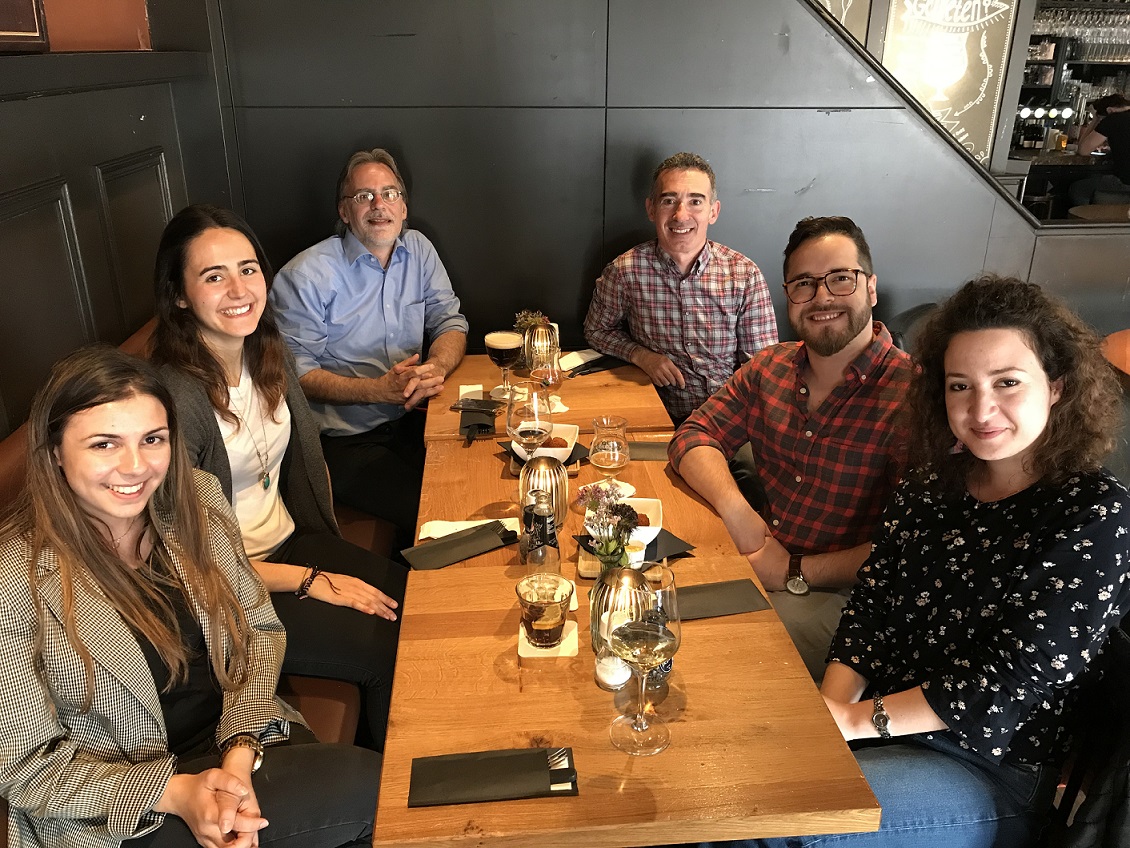
TAPAS Coordinator Visits Uni of Santiago
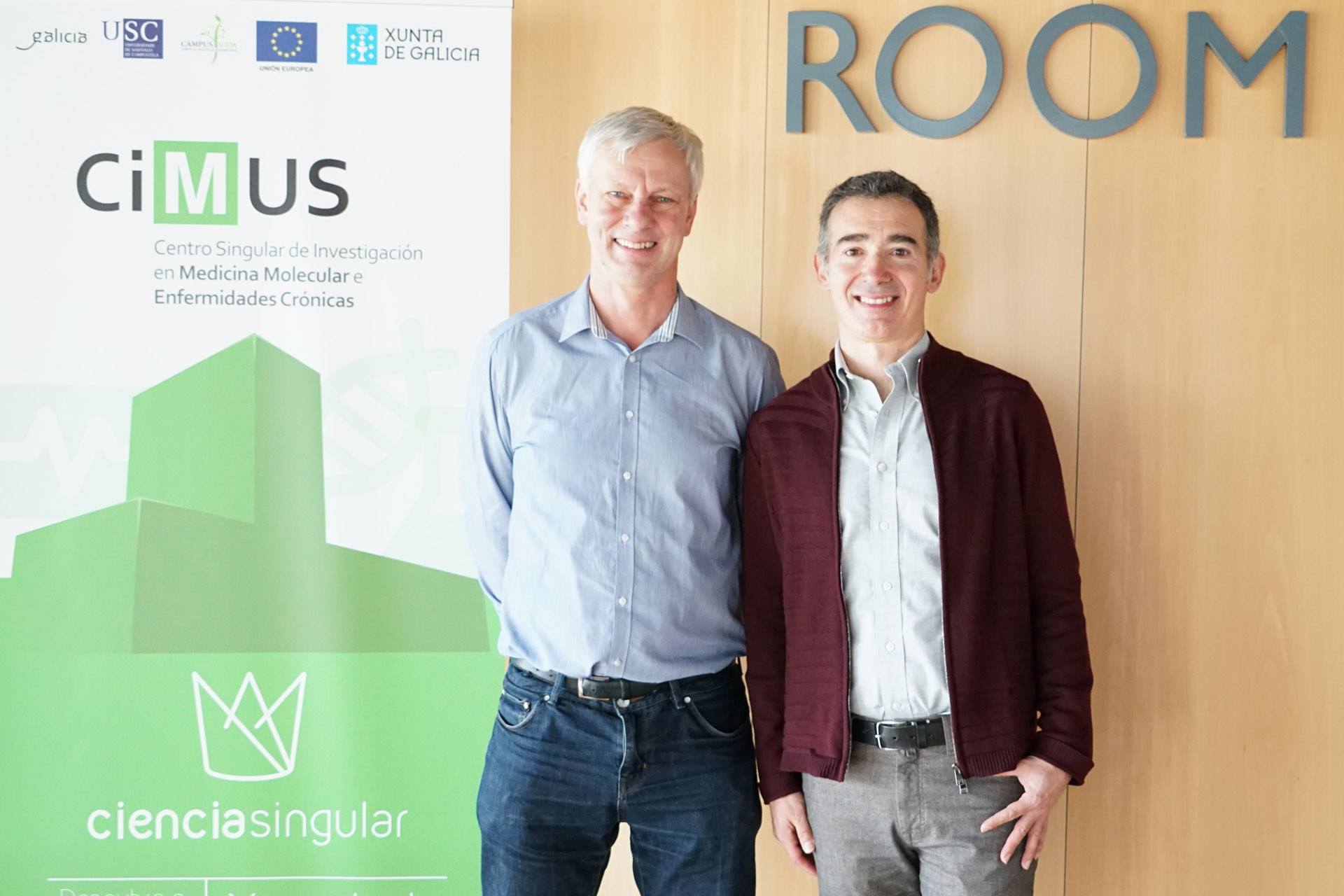
In April 19, TAPAS Coordinator, Prof Steve Watson, visited Prof. Ángel García’s lab at the University of Santiago de Compostela (USC), for a tour of facilities at the Platelet Proteomics Group at the Center for Research in Molecular Medicine and Chronic Diseases (CIMUS) and to give a seminar. The successful trip was also used to discuss the TAPAS collaboration between USC and Birmingham and to help prepare for the exchange of students between the universities that will happen next year. Steve would like to emphasise the world leading facilities and fantastic hospitality in Santiago.
Maastricht Consensus Conference on Thrombosis (MCCT)
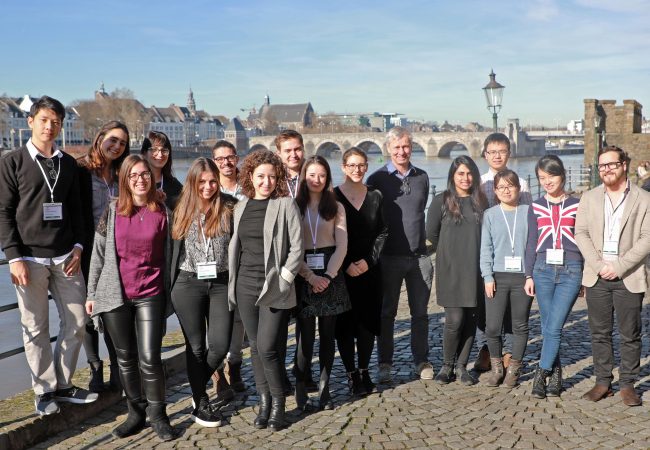
13th -15th February 2019
Post from Delia Fernandez (ESR12)
After the TAPAS Early Spring School, the Maastricht Consensus Conference on Thrombosis (MCCT) followed. Both events took place in Maastricht (NL). These events where a great occasion for all the ESRs to gather again, share the progress of their projects, and welcome some new faces (ESRs Hilaire and Chu). Although short, it prepared us for the first conference for most of us. The Maastricht Consensus Conference on Thrombosis 2019 (MCCT) celebrated its third edition. The theme of this year was “Thrombo-inflammation and cardiovascular disease”, which naturally fits perfectly with the topic of our TAPAS-ITN and therefore with all our projects.
The conference was organized into 4 themes:
- 1. How to handle prevention of coronary thrombosis
2. Peripheral artery disease: a thromboinflammatory disorder?
3. Ischemia-reperfusion injury: implications for stroke and
4. Venous thromboembolism: late complications and association with arterial vascular disease?
All the themes were covered by talks, followed by a workshop. A plenary symposium about the hot topics was held on the last day. Exceptional scientists attended this meeting such as Prof Steve Watson and Dr Wolfgang Bergmeier, to highlight some of them, who gave brilliant talks related to platelet signalling. Not only basic science was covered, but also many clinical scientists presented their research and introduced us to the difficulties of finding the perfect tools to tackle cardiovascular disease in the clinic.
After the talks, a workshop allowed some discussion on the topics presented earlier and it was when the audience had the possibility to ask questions. This made the conference surprisingly interactive and it was here where the active role of the PhD students was highlighted. The PhD students helped the speakers by guiding the discussion and taking the minutes. After the workshop a consensus discussion was held in which the PhD students presented what was discussed in the different workshops. In general, presenting someone’s research work was quite challenging for the PhD students. Nevertheless, it was a magnificent opportunity to meet many researchers from the thrombosis field.
Moreover, the discussion from the workshops, together with the talks, will be combined into a consensus document of the meeting that will be published in an international journal. In the report, the state-of-the-art and the opportunities for further research will be mentioned. The most exciting outcome will be the collaborations generated due to the talks during the meeting between different research groups!
ESR Workshop 1: TAPAS Concepts
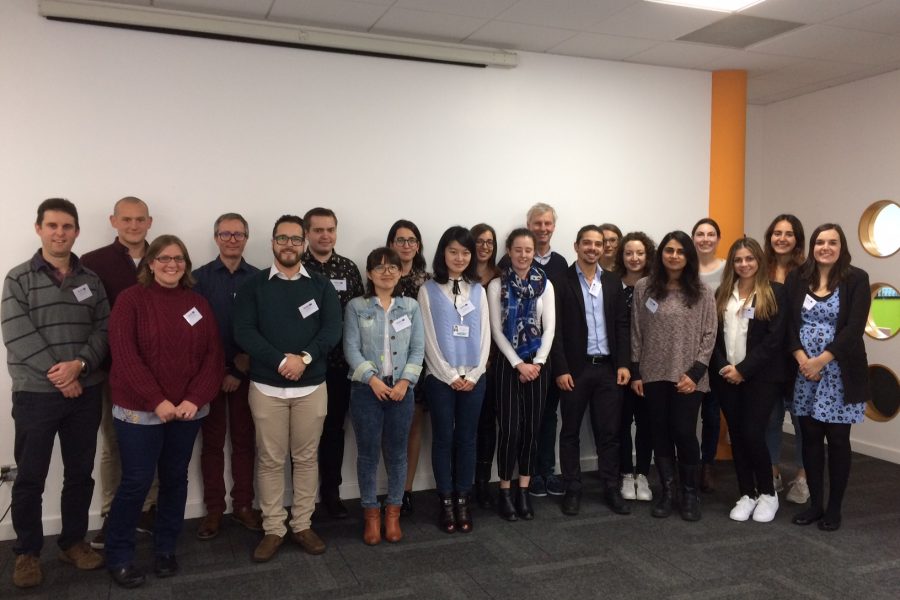
In October 2018 the University of Birmingham, hosted the first TAPAS ESR Workshop, with support from PIs from the University of Reading and project partner Nikon. The two-day workshop aimed to introduce the ESRs to the network with a series of presentations, including a session where the ESRs introduced themselves and their project, an introduction to imaging from project partner Nikon, which was complimented a computer-based session. There was also a team building activity, where the students attended a chocolate masterclass and made chocolate truffles with a local master chocolatier. We hope everyone enjoyed getting to know each other and learning more about TAPAS. The next ESR training workshop will take place in July 2019 in Wurzburg.
TAPAS Kick Off Meeting
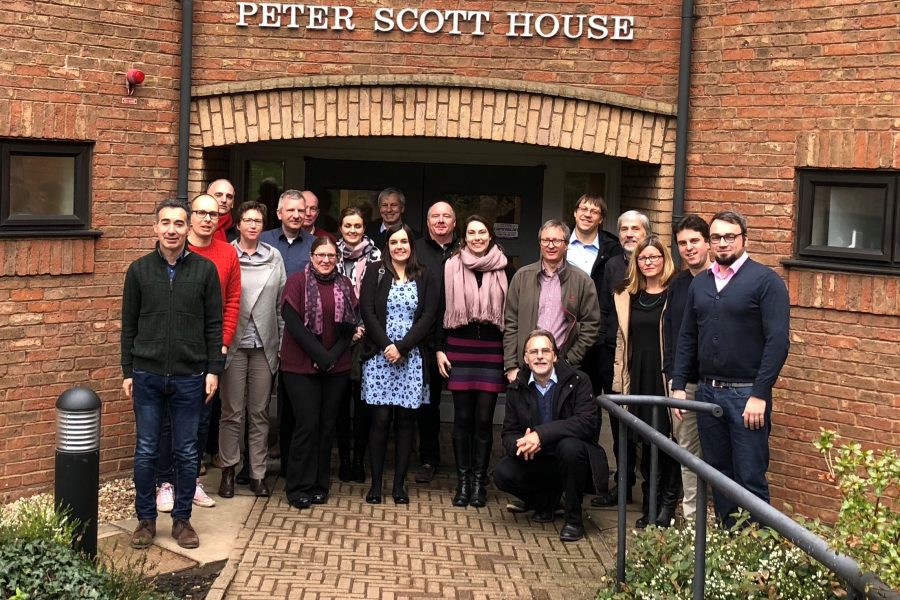
January 2018 marked the kick off of the EU funded project Targeting Platelet Adhesion Receptors in Thrombosis (TAPAS), a 4 year, Marie Sklodowska-Curie Innovative Training Network. TAPAS is a consortium of 7 European countries, led by the University of Birmingham, along with 7 beneficiaries and 6 partners from the UK, Ireland, Germany, Spain, Netherlands, Croatia and Hungary.
TAPAS will train a uniquely-qualified cohort of 15 Early Stage Researchers (ESRs) in a highly intersectoral and multi-disciplinary programme of work which will tackle the problem of thrombosis (blood clots) which can lead to heart attack and stroke and contributes to an estimated 40% of cardiovascular deaths in the EU, and costs over €200 billion a year to the EU economy. Current therapy in the prevention of arterial thrombotic events includes drugs that suppress the function of a specialised blood cell called a platelet, which is necessary for preventing bleeding but whose unregulated or inappropriate activation can lead to thrombosis. Whilst this treatment plan is effective in a large proportion of patients, it is not perfect and some patients experience further thrombotic episodes, bleeding problems or even death. The research that the TAPAS researchers will undertake will combining innovative approaches and develop new expertise to identify, understand and test new targets on blood platelets for the selective prevention and treatment of thrombotic diseases.
As a European Joint Doctorate, each Early Stage Researcher will graduate with a Joint PhD from two Institutions. Through this exciting and ambitious collaboration, the skills and knowledge gained by the ESRs will open up major career opportunities in cardiovascular and other areas of biomedical research, as well as in diverse fields ranging from research innovation to science policy and communication.
